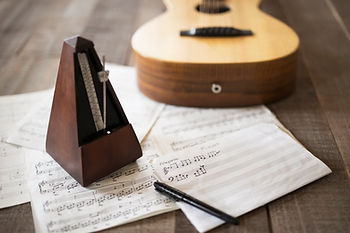
Music improvisation is a powerful and spontaneous art form that has the ability to evoke emotions, express feelings, and bring people together.
What is improvisation and what is it good for
Improvisation refers to the act of creating music spontaneously, without prior preparation or planning. It is a skill that can be developed and mastered, and it is particularly prominent in jazz, blues, and other genres of music.
Piano improvisation is a particularly beautiful form of music that has captivated audiences for decades. The piano is a versatile instrument that can be used to create a wide range of sounds and emotions. From the powerful and dramatic to the soft and calming, the piano can be used to create music that touches the heart and soul.
One of the benefits of piano improvisation is that it can be used to create soft, calming music that can help to reduce stress and anxiety. In today’s fast-paced world, many people struggle to find time to relax and unwind. Stress and anxiety can take a toll on both physical and mental health, and finding ways to manage these feelings is important. Soft, calming music can help to soothe the mind and promote relaxation, making it a valuable tool in stress management.
Research has shown that listening to soft, calming music can have a number of benefits for the mind and body. For example, it can help to lower blood pressure, reduce heart rate, and promote relaxation. It can also improve mood and reduce symptoms of depression and anxiety.
Improvising as a musician
But it’s not just listening to soft, calming music that can be beneficial. Playing the piano
and improvising can also be a great way to reduce stress and anxiety. When you play the piano, you are engaging in a creative and expressive activity that requires your full attention. This can help to take your mind off of your worries and focus on the present moment.
In addition, piano improvisation can be a great way to express your emotions and feelings. Sometimes, it can be difficult to put into words how we are feeling, but music can help to convey those emotions in a powerful way. Improvising on the piano can be a cathartic and healing experience, allowing us to express ourselves and release pent-up emotions.
Another benefit of piano improvisation is that it can improve cognitive function. When you improvise on the piano, you are engaging in a complex mental activity that requires you to think creatively and make quick decisions. This can help to improve cognitive flexibility, memory, and problem-solving skills.
In addition, piano improvisation can be a great way to enhance your musical skills. When you improvise, you are exploring different musical ideas and techniques, which can help to expand your repertoire and improve your playing overall. It can also help to improve your sense of rhythm and timing, as well as your ability to play by ear.
So how can you get started with piano improvisation? The first step is to familiarize yourself with the basic techniques and principles of improvisation. This might involve learning about scales, chords, and progressions, as well as different improvisational styles and techniques.
Once you have a basic understanding of improvisation, the next step is to start experimenting and playing around with different ideas on the piano. This might involve playing around with different chord progressions, experimenting with different rhythms and melodies, or exploring different improvisational styles.
It’s important to remember that piano improvisation is a skill that takes time and practice to develop. It’s okay to make mistakes and experiment with different ideas. In fact, making mistakes is often an important part of the improvisational process, as it can lead to new and unexpected musical ideas.
In conclusion, piano improvisation is a beautiful and expressive form of music that has a number of benefits for both the mind and body. Soft, calming music created through piano improvisation can help to soothe the mind, promote relaxation, and reduce stress and anxiety. It is a valuable tool for those seeking to manage their emotions and improve their overall well-being.
#pianoimprovisation #calmingmusic #stressreduction #mindfulness #mentalwellness #musictherapy #creativity #selfexpression #healingpower #relaxation #wellness #selfcare #cognitivedevelopment







